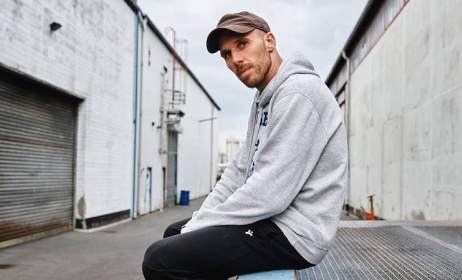Namibian artist Jackson Wahengo slams corrupt politicians in new video
Evidence of musicians' power in the political realm, Namibian singer Jackson Wahengo has released a new music video for a song that directly addresses his country’s political elite, telling them to put the people first and their personal interests second.
 Jackson Wahengo in his new video 'Eliko la Namibia'. Photo: Youtube
Jackson Wahengo in his new video 'Eliko la Namibia'. Photo: Youtube
The song, ‘Eliko la Namibia’, dates back to the 1970s and was sung in the SWAPO (South West Africa People's Organization) exile camps of Kwanza Sul in Angola, Nyango in Zambia and elsewhere. It is a resistance song that was composed to attack the oppressors, the apartheid regime of South Africa, and the extreme injustices that took place under their rule. The song is deeply ingrained in the heats and minds of every person who was a part of the Namibian struggle for liberation, including many of those who are currently in power today.
Wahengo is a child of that struggle, raised in the Kwanza Sul camp before returning to Namibia after the country’s independence in 1990. He would therefore have been exposed to the song from birth. He chose to use this old struggle song because it still carries a powerful and relevant message.
Wahengo, who is currently based in Copenhagen, Denmark (after several years in Geneva, Switzerland), drew inspiration for the lyrics from current affairs in and around Namibia, which he has closely observed while on regular visits to his motherland.
For those who do not understand Oshiwambo, the catchy chorus asks, “Why do they look so full and satisfied?”, to which he answers, “Well, they are full from our wealth, the wealth of our country.”
The song calls for the equal distribution of wealth, giving back to the people what is rightfully theirs. His message is clear and it is directed towards the elite and those who hold economic and socio-political power. “Do away with corruption! Redistribute the wealth! Fill the bellies of the suffering people! Fulfil the promise of the struggle to rebuild this beautiful country for the benefit of all its people. I know we can do it,” maintains Wahengo.
In a recent interview with the Namibian Sun, Wahengo observed: “If you say I have become political - I say that I was born political. I sang these types of songs as a kid. I was fed politics. I grew up in an extremely political environment where children grew up singing revolutionary songs – and I was one of them.
“When we were taught these songs as kids we did not fully comprehend what these songs meant. Whereas other adults would sing lullabies or children’s songs to their kids, our elders would sing revolutionary songs about war, struggle and freedom and we sang along. Everything was politicised. This has made me a product of revolutionary politics and anyone who thinks we can simply leave that life behind needs to understand that it sits in our DNA.
“This is a song of a concerned citizen and we need to ask ourselves what kind of country, what kind of community and society, we want to hand over to our children,” he explained.
Wahengo said the song “challenges the political elite in his country. It’s contemporary and holds truth of a modern Africa with musicians taking the lead again in challenging the system.”
The song’s video is produced by the Copenhagen-based New Yorker Ronnie Boykins Jr.
Over the past five years Namibia's ruling elite has faced mounting accusations of corruption, not unlike in many other African nations. The country is also set to host the Kora All-Africa Music Awards in March this year, despite recent confusion over who would fund the event.






















Commentaires
s'identifier or register to post comments